Diagnosis
Establishing Diagnosis
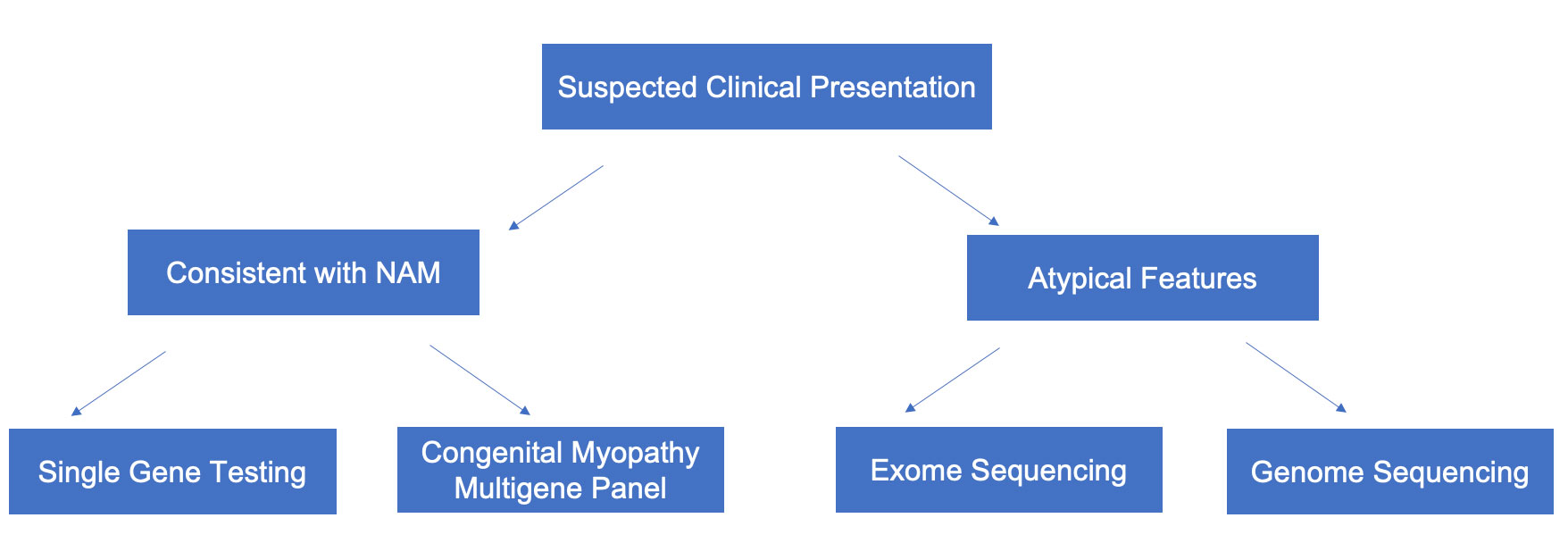
Gene Reviews. 2019 Jun 20.
Clinical Presentation
Congenital myopathy and characteristic facial features
- Congenital weakness- decreased muscle tone
- Myopathic facies- characterized by ptosis, inability to raise or downturned corners of mouth, loss of facial musculature resulting in hollowed-out cheeks, open-mouthed and expressionless appearance
- Micrognathia- undersized lower jaw that may interfere with breathing or eating
- Palatal anomalies such as cleft palate
- Lengthening and narrowing of face over time
- Low-set and posteriorly rotated ears
- Short and slanted palpebral fissures
- Telecanthus- increased distance between inner corners of eyelids
Musculoskeletal anomalies
- Congenital contractures (muscle stiffness) including talipes equinovarus (foot abnormality) to arthrogryposis (multiple joint contractures)
- Scoliosis- sideways curvature of the spine
- Kyphosis- forward rounding of the back
- Kyphoscoliosis- abnormal curving of spine on coronal plane (side to side) or sagittal plane (back to front)
Shortness in stature
Increased susceptibility to malignant hyperthermia
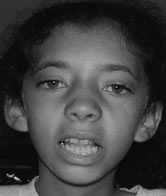

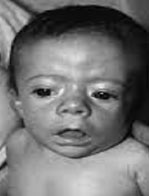
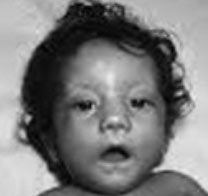

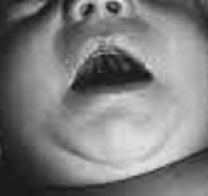

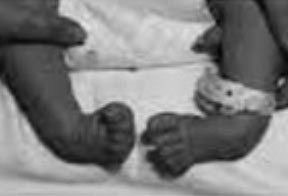
American Journal of Medical Genetics. 2008 Jun 13.
Genetic Testing
Gene-targeted testing is most often used to confirm diagnosis of STAC3 in individuals who present clinically suggestive symptoms.
- In single-gene testing, STAC3 sequence analysis detects small intragenic deletions or insertions, as well as missense, nonsense, and splice site variants. Sequence analysis is performed to detect these mutations. If only one or no pathogenic variants are identified, gene-targeted deletion or duplication analysis should be employed to detect intragenic deletions or duplications, even though no large STAC3 deletions or duplications have been identified in NAM patients.

- A congenital myopathy multigene panel that includes STAC3 and other candidate genes has a higher probability of identifying the genetic etiology. These panels may be custom laboratory designed or involve phenotype-focused exome analysis with candidate genes selected by the clinician. The methods include deletion/duplication analysis, sequence analysis, and other non-sequencing based tests.
Genomic testing is the preferred option when the individual presents with atypical phenotypic features or is not suspected to have the disorder.
- Comprehensive genomic testing through exome array, exome sequencing, and genome sequencing can lead to the diagnosis of asymptomatic individuals, in which the clinician does not need to pre-determine genes for this type of testing. In the case that exome sequencing results are not diagnostic, exome array can be used to detect potential exon deletions or duplications that had bypassed detection by sequence analysis.
Genetic Counseling & Testing Centers
STAC3 disorder is inherited in an autosomal recessive manner. At conception, each sibling of an affected individual has a 25% chance of being affected, a 50% chance of being an asymptomatic carrier, and a 25% chance of being unaffected and not a carrier. Unless an individual with STAC3 disorder has children with an affected individual or a carrier, his/her offspring will be obligate heterozygotes (carriers) for a pathogenic variant in STAC3. Once STAC3 pathogenic variants have been identified in an affected family member, carrier testing for at-risk relatives, prenatal testing for increased-risk pregnancies, and preimplantation genetic testing should be considered.
If you have a need for genetic testing, the following locations are suggested:
UNC Adult Genetics Clinic
120 Mason Farm Road, 5000 D, Genetic Medicine Building, CB#7264, Chapel Hill, NC 27599-7264
(919) 843-8724
UNC Pediatric Genetics Clinic
UNC Children’s Hospital, 101 Manning Drive, Chapel Hill, NC 27514
(984) 974-1401

Blueprint Genetics
2505 3rd Ave, Suite 204, Seattle, WA 98121
(650) 452-9340 Ext. 0

© 2021 STAC3.org